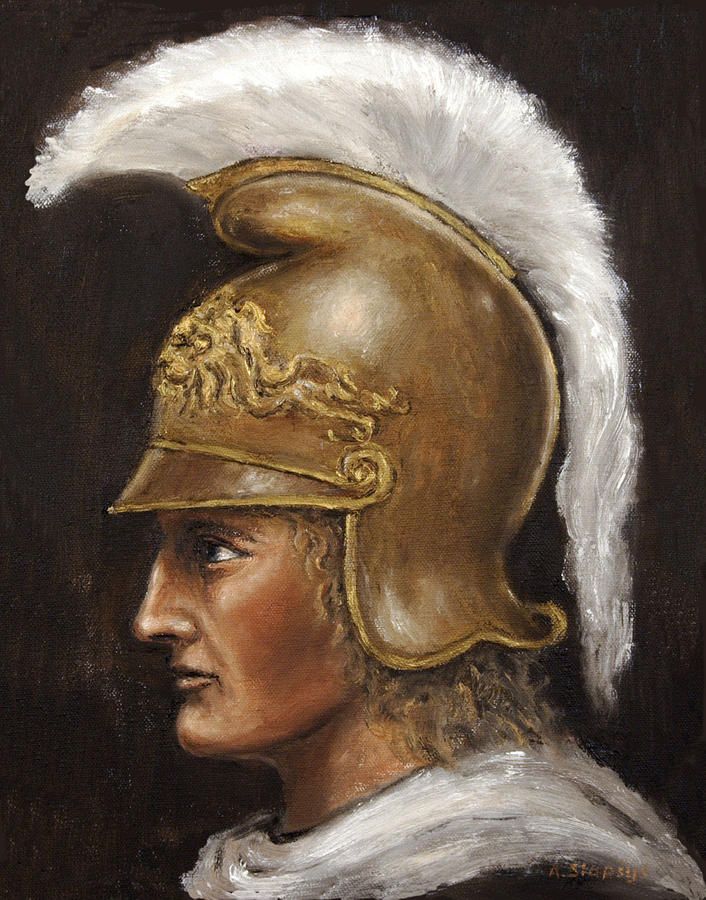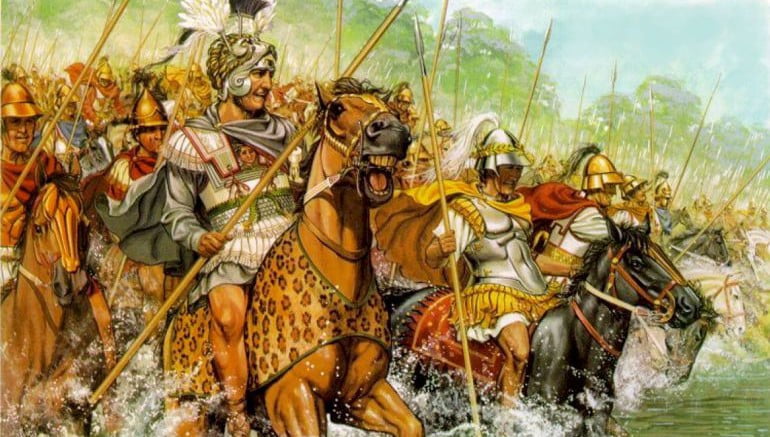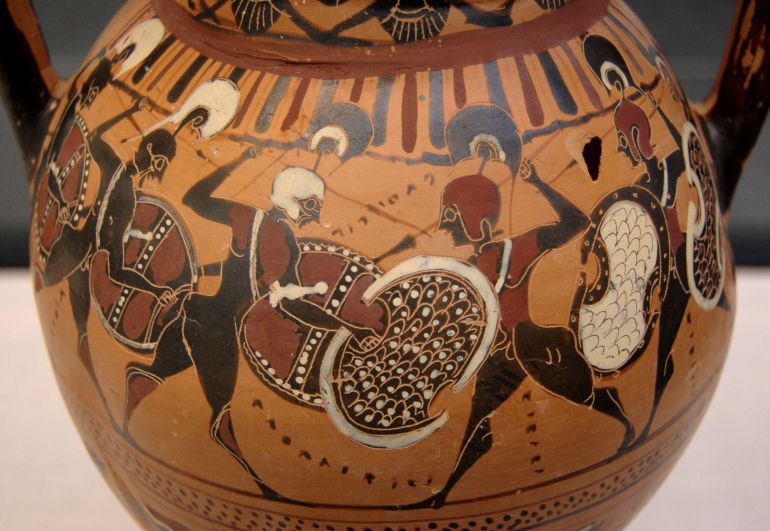Alexander of Macedonia

One of the great conquerors of the ancient world Alexander the son of Philip of Macedonia was the first invaders on Indian soil in 326 B.C. He became the king of Macedonia at the age of twenty following the death of his father. Fired by an ambition to conquer the world, he gathered a large army and waging wars one after another between 334 and 330 BC
After consolidating his position by conquering neighboring powers in Greece, Asia Minor, Persia, Syria and Egypt he started advancing towards India in 326 B.C and defeated King Porus who ruled the territory between river Jhelum and Chenab but could not go beyond Bias in the Punjab province.
As soon as Alexander crossed the river Indus, Ambhi the king of Taxila welcomed him and sought his help to fight Porus the king of Abhisara. Porus had an army of 30,000-foot soldiers, 4,000 horsemen, 300 chariots, and 200 elephants. In the initial phase of the battle, the Macedonians who had never faced such huge beasts in battle before were terrified to see the huge elephants of Porus. But in the long run, the elephants and slow-moving infantry of Porus didn’t stand a chance against Alexander’s cavalry and mounted archers.

Both the armies kept facing each other on the opposite banks of the river Jhelum. It was the month of May and the river flooded due to melting of the Himalayan snow. Alexander kept seeing the army of Porus on the opposite bank, but couldn’t think of a plan to take the enemy by surprise and cross the river. However, one dark night taking advantage of the roaring thunderstorm and the river in spate Alexander’s army crossed the Jhelum about 17 miles upstream from Porus’s camp. The noise of the storm muffled the clanking of the Greek soldiers weapons as they crossed the flooded river.
Porus and his army were completely taken by surprise to find Alexander’s army approaching from behind their back. It seemed as if Nature and everything else had turned against Porus. The riverbank was slippery and waterlogged due to the previous night’s rain. The Indian archers were carrying longbows that need to be pivoted on firm ground. They found the soil to be too slippery. The chariots and infantry got bogged down in the slush and couldn’t move. Instead of causing any damage to the enemy, the Indian elephants wounded by the Greek arrows started trampling their own soldiers. Porus’s son too died fighting bravely in the battle. All in all, it was a predefined recipe for disaster and bad-luck.
The Indians were outclassed and overshadowed while the Macedonian cavalry and light-weight chariots did not face any problem and could move around swiftly.
Though severely wounded, Porus continued to fight till the end. Mounted on his elephant he fought gallantly and received nine wounds before being captured by Alexander’s army on the banks of River Jhelum in the Battle of Hydaspes (the Greek name for Jhelum).
After the war, Alexander asked Porus how he would like to be treated. Porus replied that he would like to be treated like a king would treat another king. Visibly impressed by Porus’s reply Alexander offered a hand of friendship and not only gave Porus his own kingdom back but also granted him lands to the south-east extending till the river Hyphasis (Beas).
Alexander now wanted to march east and attack Dhana Nanda of the Nanda dynasty who ruled over Magadha. But due to years of campaigning his army was worn out and exhausted. The homesick Greek soldiers couldn’t see any end to their king’s ambition and wanted to return to their homeland. So they mutinied, and refused to fight any further.
Finally, Alexander decided to return to Macedonia but died of fever at the age of 33 in Babylon near Baghdad in 323 B.C. His sudden death led to a lot of confusion and turmoil in the Greek empire.
It is pertinent to note that most of the Macedonian soldiers who traveled more than 33,400 km with Alexander in his Asia-bound military campaign and crossed the river Nile (in Egypt), Euphrates and Tigris (in Iraq), Oxus (in Tajikistan), Syr-Darya (in Uzbekistan) and Indus (in Pakistan) were not paid any fixed salary. The Macedonian kings in those days did not have a system to pay their soldiers who were instead allowed to keep a part of the booty captured by looting the enemy. As a standard practice in those days, the elite cavalry got a larger portion of the ‘loot’ than the infantry.

Alexander came like a storm and went back like a whirlwind in India where he stayed only for a period of 19 months. However, it would be wrong to say that Alexander didn’t leave any impact on Indian government, people, literature, or culture. On the contrary, Alexander paved the way for Chandragupta to unify India. The consolidation of Punjab and Sindh was also one of the outcomes of Alexander’s invasion.
At the back of his mind, Alexander’s desire was to keep Indian territories under his rule. As a result, he divided his Indian territories as well into five provinces each under an Indian or Greek governor and maintained Greek garrisons in important cities. But, this proved to be a futile dream.

After Alexander’s death, most of his Greek governors weakened by their internal rivalry couldn’t pay proper attention to his Indian territories and left India with their soldiers while the Indian governors declared their independence or were wiped out by Chandra Gupta Maurya.
One of the many reasons why Alexander’s conquest of India proved to be short-lived was that the source of the Greek power was very far from India hence it was not possible to keep India under permanent subjugation.

